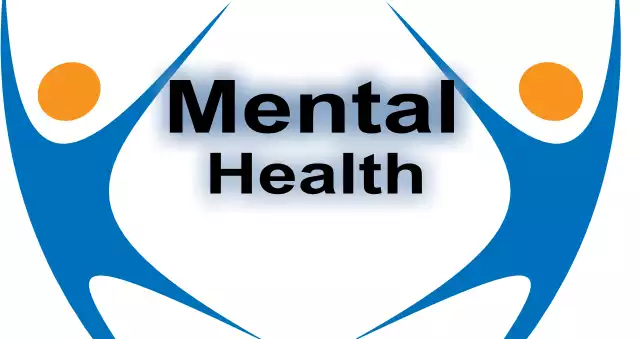Top Priority Mental Health
Top Priority Mental Health is essential for overall well-being as it affects various aspects of a person’s life.
Poor mental health can significantly impact physical health, relationships, productivity, and personal fulfillment.
When individuals struggle with mental disorders, such as depression or anxiety, their risk for chronic physical health problems increases.
Untreated mental disorders increase the risk of stroke, type 2 diabetes, and heart disease.
Furthermore, mental health directly influences relationships and overall productivity.
Inability to manage emotions, stress, and mental health issues can strain relationships with family, friends, and colleagues.
This, in turn, can lead to feelings of isolation and loneliness, which negatively impacts mental well-being.
At the workplace, poor mental health can result in decreased productivity and performance, affecting one’s professional success and overall satisfaction.
Ultimately, an individual’s mental health is crucial for achieving personal fulfillment and happiness.
Neglecting mental health can stop people from fully engaging in life, pursuing their passions, and being satisfied with life.
Therefore, fostering good mental health is vital for leading a fulfilling and healthy life.
Table of Contents Top Priority Mental Health
Mental health affects every aspect of your life.
Your mental health is not separate from your overall well-being.
It is interconnected with your physical health, relationships, work performance, and overall quality of life.
Taking care of your mental health is essential for a balanced and fulfilling life.
Good mental health is a key to living life to the fullest.
Being aware of one’s emotional state and taking necessary steps to manage it is essential for achieving personal contentment.
Mental wellbeing helps us maintain a positive outlook on life and find joy in everyday experiences.
To take care of your mental health, connect with others, do activities that make you happy, and find ways to cope.
The importance of mental health cannot be overstated.
Taking care of your mental health is just as important as taking care of your physical health.
Mental health issues, such as anxiety and depression, can have a major impact on every aspect of life.
Therefore, it’s essential to pay attention to your mental wellbeing in order to ensure overall well-being.
It impacts your physical health.
Studies have shown that there is a strong correlation between mental health conditions and physical health.
Poor mental health can lead to physical symptoms such as headaches, stomachaches, and fatigue.
It can also weaken your immune system, making you more susceptible to illnesses.
The impact of mental health extends to relationships and overall productivity.
Managing emotions, stress, and mental health conditions is crucial for healthy relationships with family, friends, and colleagues.
Otherwise, it can lead to feelings of isolation and loneliness which can have a detrimental effect on one’s mental well-being.
Poor mental health can also have an impact on work performance.
At the workplace, an individual’s mental health can determine how successful they are in their career.
An individual with poor mental health may feel overwhelmed and struggle to complete tasks effectively.
This can lead to decreased productivity, missed deadlines, and dissatisfaction with work.
Additionally, neglecting one’s mental health can prevent them from achieving personal fulfillment.
Neglecting emotional well-being hinders people’s ability to fully participate in life, follow their passions, and experience happiness.
It is essential to take care of your mental health for a balanced and fulfilling life.
Good mental health is just as important as physical health in achieving personal contentment.
It affects every aspect of life from relationships to work performance.
Therefore, it’s important to be aware of one’s emotional state and take steps to manage it.
This can include connecting with others, doing activities that make you happy, and finding ways to cope with stress.
Taking care of your mental health is essential for leading a productive and satisfying life.
It affects your relationships
Mental illness plays a significant role in how we interact with others.
When you have good mental health, you are better able to communicate effectively, manage conflicts, and build healthy relationships.
On the other hand, untreated mental health issues can strain relationships and lead to feelings of isolation and loneliness.
Mental illness issues can disrupt the ability to think clearly, concentrate, and make decisions.
These difficulties can lead to decreased productivity at work or school, as well as difficulty completing everyday tasks.
Poor mental health can also affect one’s ability to handle stress and meet deadlines efficiently.
It greatly impacts personal fulfillment.
Individuals must take care of their mental health in order to achieve personal fulfillment.
When mental health is neglected, it can lead to feelings of dissatisfaction and hopelessness.
It is important to recognize the signs of poor mental health and seek help from a professional if needed.
With proper treatment, individuals can feel more motivated and inspired to reach their goals.
Taking care of your mental health is essential for achieving overall well-being.
It not only affects physical health, but also relationships, productivity, and personal fulfillment.
Mental illness issues can be difficult to identify and manage on your own. Therefore, it is important to recognize the signs of poor mental health and seek help from a professional if needed.
By addressing mental health issues early on, individuals can live more fulfilling lives and reach their goals.
It affects your work performance.
Your mental health can impact your ability to concentrate, make decisions, and be productive at work.
Untreated mental health issues can lead to decreased performance, absenteeism, and even job loss.
Taking care of your mental health can help you thrive in your professional life.
It can improve your living standards and improve quality of life.
Mental health is essential for living a satisfying and meaningful life.
Having good mental health helps us enjoy life, reduce stress, pursue our passions, build strong relationships, and achieve our goals and dreams.
It can even help us face adversity with resilience and optimism.
Good mental health lets us find joy in small moments, appreciate the beauty in our lives, and find purpose in our struggles.
Bipolar Disorder
It’s a mental health condition that involves extreme shifts in mood and energy levels. It can cause severe depression, mania, and other emotional disturbances.
Bipolar disorder is typically treated with medication and psychotherapy.
It is important to seek professional help if you or someone you know has bipolar disorder.
With the right treatment, individuals with bipolar disorder can lead productive lives and find fulfillment.
Having good mental health helps us enjoy life, reduce stress, pursue our passions, build strong relationships, and achieve our goals and dreams.
It can even help us face adversity with resilience and optimism. Good mental health lets us find joy in small moments, appreciate the beauty in our lives, and find purpose in our struggles.
Bipolar Disorder is a mental health condition that involves extreme shifts in mood and energy levels. It can cause severe depression, mania, and other emotional disturbances.
Bipolar disorder is typically treated with medication and psychotherapy. It is important to seek professional help if you or someone you know has bipolar disorder.
With the right treatment, individuals with bipolar disorder can lead productive lives and find fulfillment.
It is important for self-care.
Self-care is not just about pampering yourself or indulging in leisure activities. It also involves taking care of your mental and emotional well-being.
Practicing mindfulness, exercising, and seeking therapy are important for taking care of your mental disorders.
It promotes emotional growth.
Good mental health is essential for personal growth and development.
It helps us become more self-aware, understand our emotions, and learn how to manage them effectively.
With improved mental health, we can make better decisions and develop healthier coping mechanisms that can help us grow emotionally.
It aids in living a meaningful life.
One of the biggest benefits of good mental health is being able to live a meaningful life.
With improved emotional wellbeing, we can be more present in our lives and find meaning in our experiences.
Good mental health allows us to pursue our passions, fulfill our potentials, and lead a satisfying life.
It helps in managing stress.
Stress is a normal part of life, but chronic stress can have detrimental effects on your mental and physical health.
Taking care of your mental illness can help you develop healthy coping mechanisms and better manage stress.
This can improve your overall resilience and ability to handle life’s challenges.
It is essential for personal fulfillment.
Good mental health is essential for achieving personal fulfillment and happiness.
When you are mentally healthy, you are better able to cope with life’s challenges and find joy in everyday activities.
This helps you pursue your passions and lead a meaningful life.
On the other hand, neglecting your mental health can make it difficult to be satisfied with life, leading to feelings
It promotes personal growth and fulfillment.
When you prioritize your mental illness, you are investing in your personal growth and self-development.
Reflecting on your emotions, thoughts, and actions can bring personal insights, improve self-awareness, and bring fulfillment.
In conclusion, your mental health is essential to your overall well-being.
It impacts your physical health, relationships, work performance, and personal growth.
Prioritizing your mental health is important. Seeking professional help when necessary is a sign of strength, not a sign of weakness.
Remember, you deserve to live a happy and healthy life.







